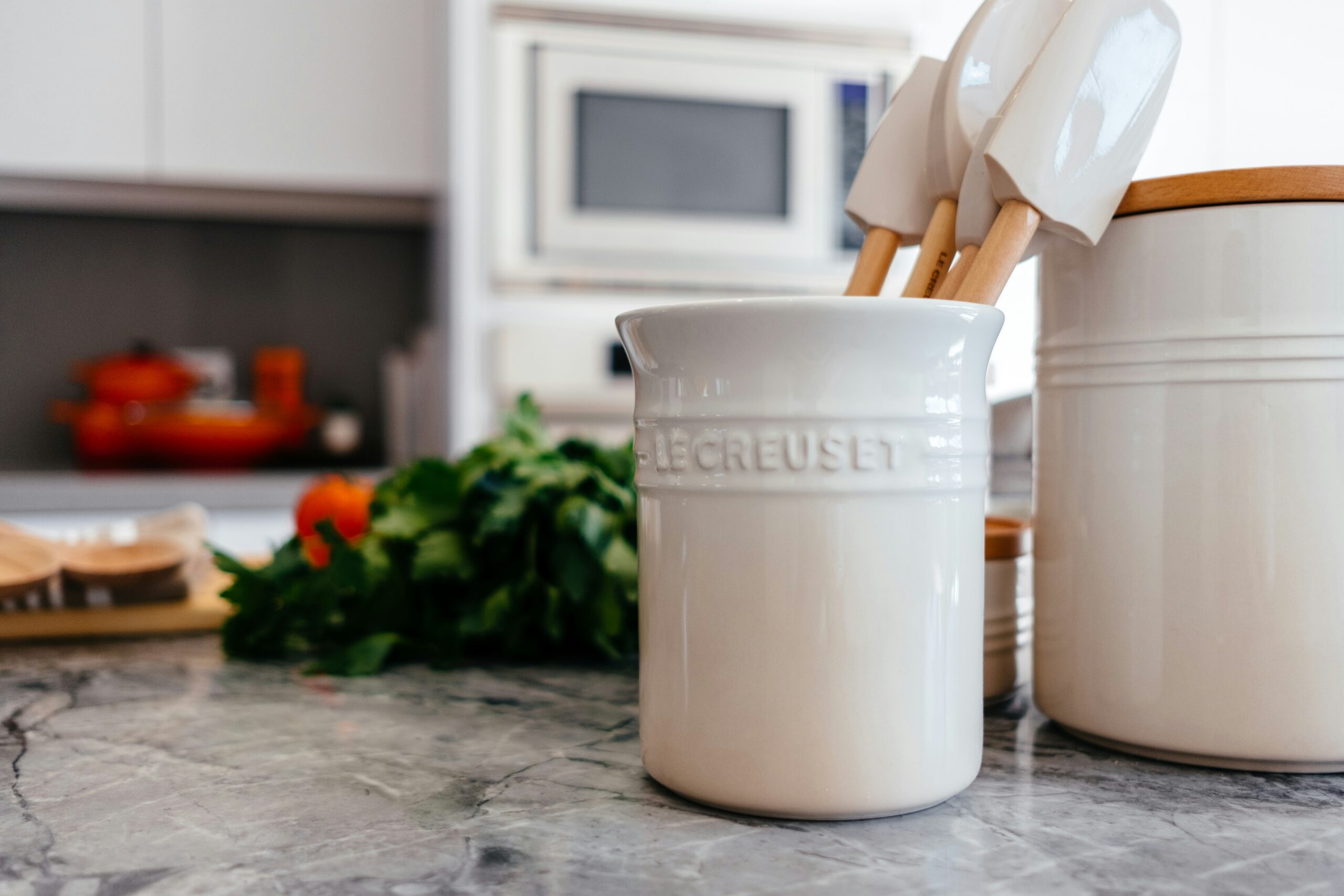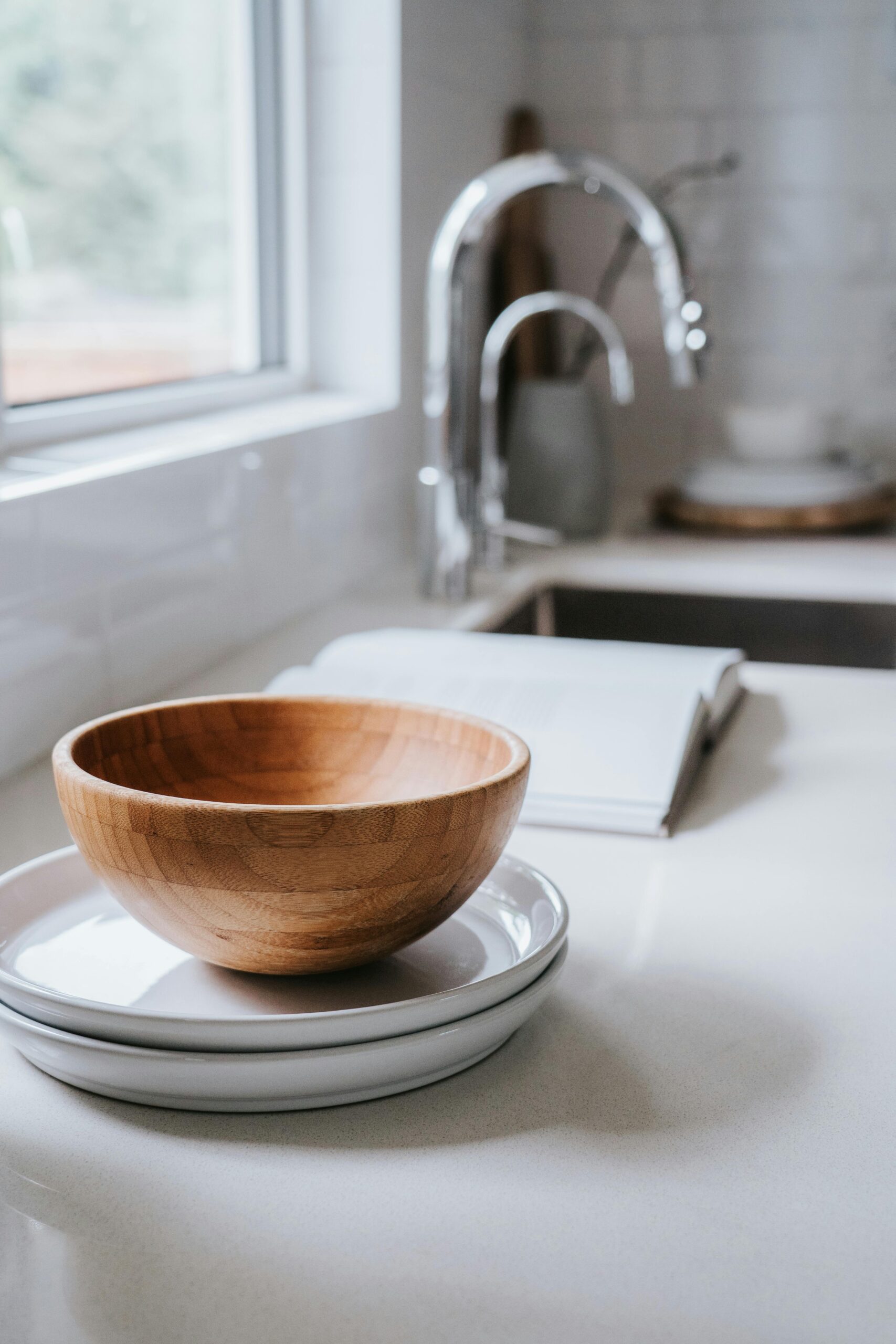Kitchen countertops are tricky in the sense that you have open space that feels counterintuitive not to decorate or fill. However, since you also have to share that space with the food you’re prepping, a revolving door of dishes, and other odds and ends, how do you decide what belongs there? While it’s entirely up to you how you style and organize your countertops, there are a few items you should think about limiting not just for aesthetic reasons, but safety and sanitary ones too.
1. Sponges
It’s convenient to keep your sponges on your counters, but here’s a dirty little secret—it harbors a ton of bacteria, roughly 45 billion. That includes more than 362 species like Salmonella, Staphylococcus, and E. coli. Gross. So how do you find the balance between convenience and cleanliness? Give your sponge the spa treatment it deserves by regularly sanitizing it. Pop it in the microwave for a minute or toss it in the dishwasher on a hot cycle. And when it starts to resemble a soggy pancake, retire it for a new one.


2. Various Utensils
Reaching for a spatula or pair of tongs might make storing them on the counters in a container make sense, but have you ever noticed how quickly they can gather dust and grime when left out in the open? It’s a safer bet to keep them out of site. If you’re worried about how cluttered things can get in a drawer, a simple solution is to add drawer organizers. This keeps them out of harm’s way and prevents the chaos of scattered items sliding and rolling around.
3. Condiments
It’s all too easy for half-empty bottles of ketchup and mustard to stage a hostile takeover of your precious counter space. But there’s more at stake here than just aesthetics. Do yourself a favor and keep your condiments out of sight, either in the fridge or the pantry. Even if you use the hot sauce or balsamic vinaigrette daily, it will help free up countertop space. Also, it can protect light-sensitive ingredients like olive oil from degrading.
4. Wine
If you love having a bottle of your favorite vintage wine sitting proudly on your kitchen countertop, it might look nice, but it’s actually harming the flavor! Store your bottles properly in a cool, dark place away from direct sunlight and temperature fluctuations.


5. Mail Mountains
If you have a habit of leaving a paper trail of mail in your kitchen, it might be time to find your envelopes, postcards and catalogs a new home. It seems harmless at first with just one or two, but adding bills, advertisements, and random flyers and the situation can quickly escalate into a clutter crisis. You can resolve this simply by having a mail organization system—and that doesn’t mean shoving them in a junk drawer! A small mail organizer by the entryway or in your bedroom or office can help tidy things up without being scattered, spilled on, or risking catching fire in the kitchen.
6. Keys
Kitchen countertops are a danger zone for keys. They could be hiding among cups and plates and accidentally take a spill in the sink and fry any electronics you may have like an electric key, get food residue on your keychain, or spread bacteria that accumulates from keeping them in your bag or pocket. If you’re notorious for losing your keys, keep them in a designated place like in a drawer or on a hook by the doorway.
7. Small Appliances
It seems like there’s a mini appliance for everything—smoothies, coffee, popcorn, soda, air frying, slow cooking toasting . . . the list goes on and on. But keep in mind, the more things you have on your surfaces, the more you have to move around to clean. If your counters are starting to get crowded with these accessories, it might be time to re-evaluate. If it’s something you use every day, like a blender or air fryer, it might make sense to keep it. Aim to limit to one or two, and keep the rest in the pantry or cabinet.
